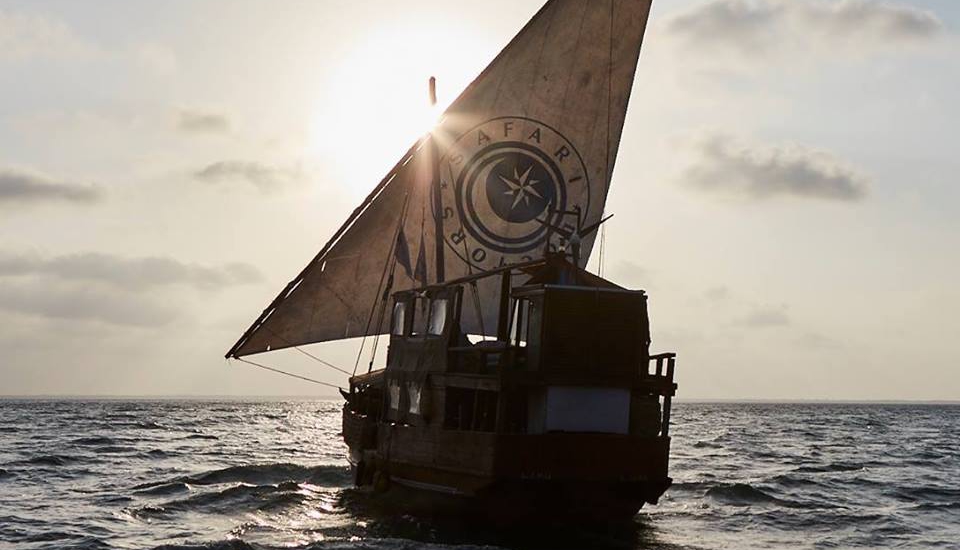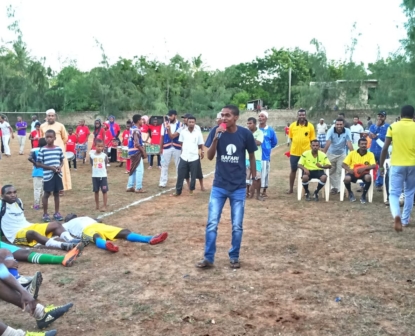Project
Pamoja Project
-
Amount Funded
176,243 EUROProject Duration
01 Jan 2019 - 31 Dec 2020 -
-
Lead organisation
-
Safari Doctors visions thriving communities in remote settings having access to affordable health solutions and improved livelihoods. The organisation is striving to realise this through efforts to improve health service delivery and capacity building in its target communities. Safari Doctors also operates a youth Health Ambassadors programme, engaging young men and women who receive basic health education and training, to facilitate the work and empower their communities.
The programme engages under-served youth in Lamu County as leaders in their communities, improve access to sexual and reproductive health education, and foster community wellbeing across the villages that Safari Doctors serves.
-
Organisation
Safari Doctors visions thriving communities in remote settings having access to affordable health solutions and improved livelihoods. The organisation is striving to realise this through efforts to improve health service delivery and capacity building in its target communities. Safari Doctors also operates a youth Health Ambassadors programme, engaging young men and women who receive basic health education and training, to facilitate the work and empower their communities.
The programme engages under-served youth in Lamu County as leaders in their communities, improve access to sexual and reproductive health education, and foster community wellbeing across the villages that Safari Doctors serves.
-
Project
Pamoja Project applies the approach of Population – Health – Environment (PHE) in addressing linkages between health service deliveries, community – based natural resource management (NRM) and conservation through innovative, cross-sector interventions. The PHE approach understands that lack of access to health, sexual and reproductive services acts as a barrier to community participation in NRM, thereby limiting effective management of both marine and terrestrial resources. The project takes advantage of the unique outreach capabilities of Safari Doctors and Northern Rangelands Trust (NRT- Coast) operating in the same geographies with aligned organisational goals and values.
The project increases the communities’ capacity to demand improved service delivery from local government and help local leaders better understand the issues faced by their indigenous constituents and how to address them. Ultimately, the project visualises its innovation informing Lamu County’s Integrated Development Plan, with potential to scale to the entire County.
As an Innovate and Learn grantee, the project ensures that creative measures are also part and parcel of communicating better the highs as well as the lows the project is facing.
From the onset it was visible that the belief of the community owning their rights and voice posed to be a challenge. However, it’s prudent to note that there is an ongoing shift of positive thinking as more community members become active and intentional in ensuring that they are part and parcel of promoting a safer and healthier environment.
Through a partnership with Skoll Foundation, the team has shared the below wonderful video which documents the journey of the project past its halfway point.
-
-
Pamoja Project applies the approach of Population – Health – Environment (PHE) in addressing linkages between health service deliveries, community – based natural resource management (NRM) and conservation through innovative, cross-sector interventions. The PHE approach understands that lack of access to health, sexual and reproductive services acts as a barrier to community participation in NRM, thereby limiting effective management of both marine and terrestrial resources. The project takes advantage of the unique outreach capabilities of Safari Doctors and Northern Rangelands Trust (NRT- Coast) operating in the same geographies with aligned organisational goals and values.
The project increases the communities’ capacity to demand improved service delivery from local government and help local leaders better understand the issues faced by their indigenous constituents and how to address them. Ultimately, the project visualises its innovation informing Lamu County’s Integrated Development Plan, with potential to scale to the entire County.
As an Innovate and Learn grantee, the project ensures that creative measures are also part and parcel of communicating better the highs as well as the lows the project is facing.
From the onset it was visible that the belief of the community owning their rights and voice posed to be a challenge. However, it’s prudent to note that there is an ongoing shift of positive thinking as more community members become active and intentional in ensuring that they are part and parcel of promoting a safer and healthier environment.
Through a partnership with Skoll Foundation, the team has shared the below wonderful video which documents the journey of the project past its halfway point.
-
“The best thing for me has been entirely everything I have learnt on the importance of health coverage for my community and how to involve them in improving it. These training sessions have really empowered me. I look forward to volunteering more on the projects and activities that will change my community for the better. The shared knowledge I experience when I am with the rest of my teammates is incredible and I always look forward to the next meeting with them“. Mkuu Mohamed Bwanausi, CHW Kizingitini
The Pamoja (meaning together in Kiswahili) Project aimed to apply the Population-Health-Environment (PHE) approach to address the linkages between health service delivery, community-based natural resource management (NRM) and conservation through an innovative, cross-sector intervention. The PHE approach understands that a lack of access to health, sexual and reproductive services acts as a barrier to community participation in NRM, thereby limiting effective management of both marine and terrestrial resources.
The project sought to take advantage of the unique outreach capabilities of Safari Doctors and NRT-Coast operating in the same geographies with aligned organisational goals and values. Overall, the interdisciplinary and intersectionality of the project design helped Safari Doctors develop and refine their theory of change of how to address health, social and environment issues in the same project cycle. If communities can live and thrive in healthy and holistic environments, the impact can be felt by them for generations as well as work towards providing dignity to those who are often left behind or marginalised.
More precisely, the project addressed the below learning lessons;
- Does the project increase access to health services and information and increase health-promoting behaviours among the target communities?
- Does the innovation strengthen engagement in NRM among the target communities?
- Does the innovation strengthen political participation among target communities at County government level?
- Does the partnership between Safari Doctors, NRT-Coast and Blue Ventures provide a scalable model for a more holistic and sustainable approach to engaging communities on issues of Population, Health and Environment?
- Does the County government have the capacity to adopt key project activities to ensure project legacy?
The most significant and innovative were the government roundtables, which were all about health discussion dialogue in Lamu County, and the lesson Safari Doctors have learned in order for policy and decision makers and their constituencies, is that the Members of County Assembly as well as the Village Chiefs need to be closer to the people to listen to their concerns with the aid of informal and sometimes field based exchanges.
The project also strengthened the work with the Northern Rangelands Trust (NRT)and Blue Ventures in the region to better address issues that affect the environment that these populations of the indigenous and marginalised depend on. The simple impact of seeing plastics being cleared to make way for better farming, fishing and hygiene motivates us to continue.
Furthermore, the ability to see change in attitudes, skills and behaviour within the project cycle makes it meaningful for all those involved from youth able to access better sexual and reproductive health services means they can make wiser, more informed, choices (contraception, counselling, family planning. etc.).
- News




